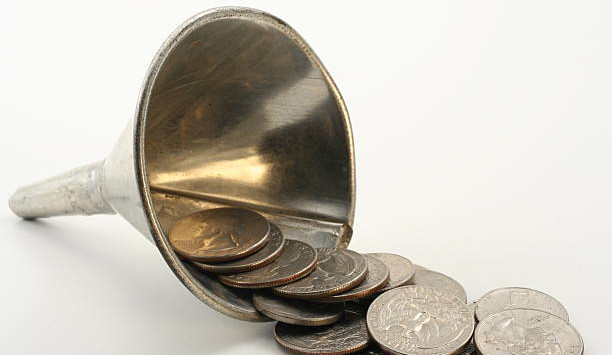Instead of my bills coming out of my chequing account, could I just put all of my bills (save for rent) to be charged on my credit card while dumping the amounts for my bills onto the card? And that way, by paying my bills with my credit card, I can earn cash back rewards towards paying down the card’s principle?
Assuming I’m following the question correctly, you’re wondering if you can pay all (or most) bills with your credit card instead of paying bills from your chequing account? Then, since bills are being paid from your credit card, it should generate points (or cash back rewards) which will contribute to paying down your credit card bill?
Yes, you can do this. In fact, a lot of people do take this approach. As the question suggested, many cards give cash back rewards or points which can be redeemed in order to pay down the credit card balance. There are other benefits too.
One nice benefit of using a credit card to pay bills is it provides a buffer between when the bill is issued and when you actually pay it. Let’s say you receive a utility bill on June 1st which must be paid by June 15th. If you pay this bill from your chequing account, the money must leave your bank account no later than June 15th and probably sooner. However, when you pay with a credit card, your card is charged sometime in the first two weeks of June. Your credit card might not hit its next statement date (the date the card’s bill is published) until the end of the month and wouldn’t be due until the middle of July. This means the point when the money needs to leave your chequing account to cover the credit card bill could be mid-July. You’ve essentially created a buffer of a month between when your utility bill is received and when the money to cover it leaves your account.
When used carefully, making sure all your bills are paid before their due dates, a second benefit to using the credit card to pay bills is it gives you some wiggle room. It means there’s some flexibility in the timing of paying things. When used responsibly, this gives you a cushion of time to pay off your bill in case an emergency comes up. You’ve got an extra couple of weeks (likely a pay cycle) to come up with the money needed to cover both the bill and your extra expenses.
The key to making this buffer, and the wiggle room in your budget, work is to not recklessly spend the money on something else. Keep it in your savings account where it can accumulate interest until it’s time to pay off the credit card bill.
The third benefit is credit card companies like seeing people responsibly use their cards to pay bills (assuming your card is paid off on time too) and they’re likely to raise your credit limit, which in turn raises your credit score. The higher credit limit will be handy in case you need to make a large purchase in the future on your credit card. The higher credit score rate may be handy when you apply for a loan or mortgage.
The fourth benefit to using a credit card to pay your bills is it helps organize your expenses. In one of our budgeting tips I talked about the importance of tracking expenses to get an accurate picture of your budget. Using a credit card to pay regular bills, rather than putting everything through your chequing account, makes for a cleaner chequing account statement. Having most bill payments on a separate card will make it easier to browse the statement to record expenses and track reoccurring charges. This is especially true if you have two credit cards. I sometimes suggest people use one credit card for regular, household expenses and bills (groceries, electric bill, heating bill, phone bill, fuel for the car) and a second credit card for things they want like dinner out, vacations, drinks with friends, toys, and so on. Basically, having one credit card for household necessities and one card for fun stuff makes it easier to budget and see where your money is going each month.
Using two cards – one for necessities and one for fun – also helps put a cap on the monthly fun budget. You can request your credit card company put a lower cap on your “fun card”, limiting excess spending on it.
With all these benefits, is there a downside to paying bills with a credit card? There can be. Putting more money, whether it’s bills or something else, through a credit card means it’s more important than ever to pay off your credit card’s statement balance in full each month. Otherwise the debt load goes up and a card’s high interest payments can get expensive quickly. Also, having the “buffer” I mentioned before, between when a bill arrives and when the credit card payment is due, leaves more money in your bank account longer. It can be tempting to spend this money on something else.
For both of these reasons, it takes more discipline to funnel bill payments through credit cards. There are definitely benefits, but it becomes important to leave money in your bank account to cover the eventual credit card bill – in full – each month. Spending the money in your bank account, spending the “wiggle room” that builds up, could cause lasting credit card debt. In other words there are some strong benefits to using credit cards to pay monthly bills, it’s just important to be mindful of the process and not spend the funds you need to cover the credit card bill on anything else.

Comments are closed, but trackbacks and pingbacks are open.